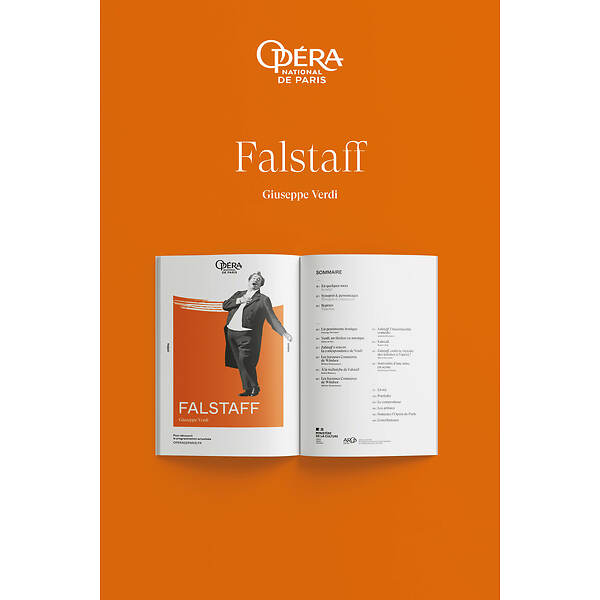FALSTAFF / PROGRAMME / Bastille / Septembre 2024
Description
If Falstaff were an animal, he would be a peacock. He plays the beau in front of the Merry Wives of Windsor, convinced, despite his paunch and his age, that he holds them under his spell. He goes so far as to send the same love letter to Mrs Ford and her friend Meg. But beware the women's revenge, as they will not rest until he repents.
"All the world's a farce" is the moral of this bittersweet comedy inspired by Shakespeare. In bequeathing this final masterpiece at the age of 80, Verdi displayed his extraordinary vitality and astonishing modernity in his musical structure.
Dominique Pitoiset's lively, effective staging shifts away from the Elizabethan era to set Falstaff in the bourgeois world of the early 20th century, close to the era of the work's composition. In so doing, he reveals what undoubtedly moved the composer in this complex but fascinating character: his profound humanity.
Product information
- Publication Year
- 2024
- Technical specification
Duration : 2h40 with 1 interval
Language : Italian
Surtitle : French / English
Lyric commedy in three acts (1893)
After The Merry Wives of Windsor and scenes from Henri IV by William Shakespeare

